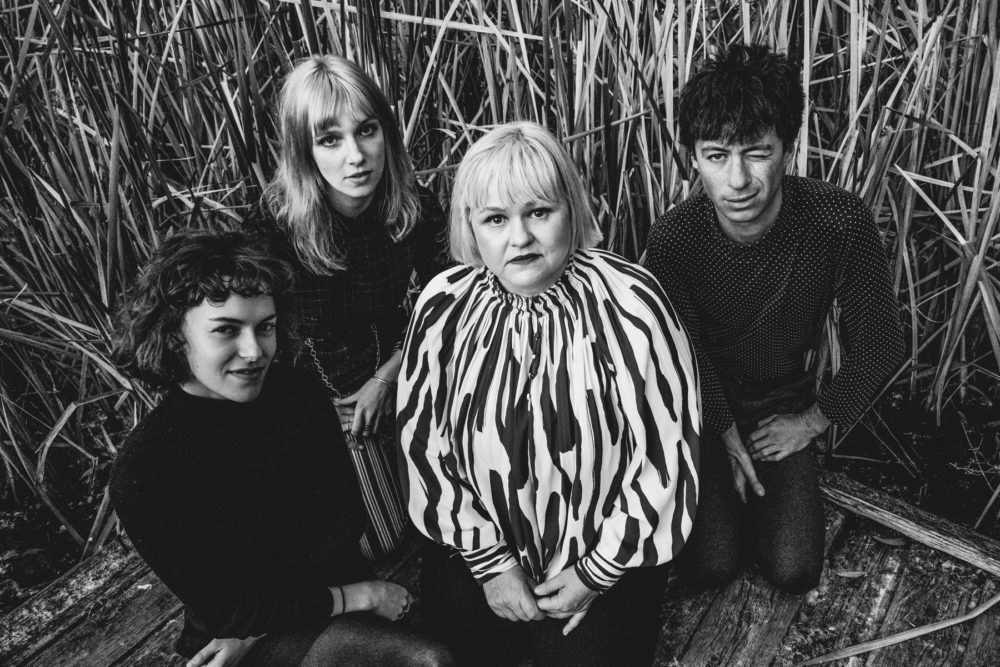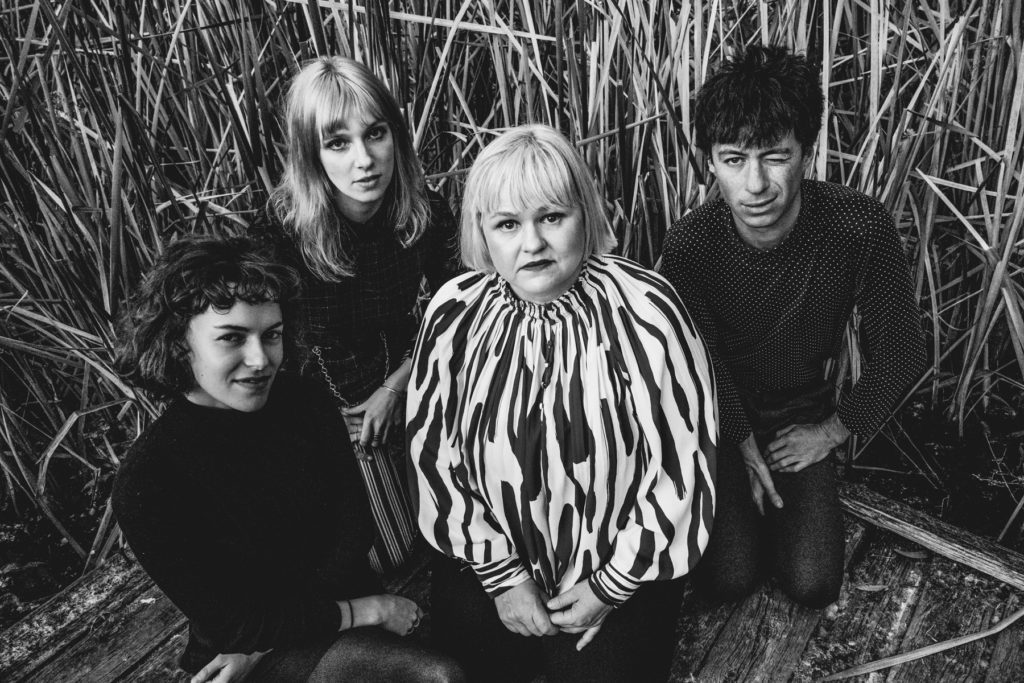

Thibault may be the best ’90s band that isn’t actually a ’90s band. Nicole Thibault, formerly of experimental jazz band Minimum Chips, has just released her debut album with collaborators Rebecca Liston (of Parsnip), The Ocean Party’s Lachlan Denton, and Julian Patterson, who was her Minimum Chips bandmate. Fittingly, the LP came out via long-running Melbourne label Chapter Music, founded by former Minimum Chips bandmate Guy Blackman in 1992 to distribute compilation cassettes, fanzines and CDs.
Or Not Thibault has earned the ultimate praise from Bikini Kill/Le Tigre alum, Kathleen Hanna. “Thibault is like if two of my favourite bands, Stereolab and Electrelane, merged together and were made brand new by Nicole’s originality,” she says on the label’s website. Hanna has followed Thibault’s work for a long time; though little known even to fans of Minimum Chips, Thibault was also a member of Brisbane-based riot grrl band Clag, who performed with masks taped to the back of their heads and Mr Men toys studded around the stage. A 2012 album compiled all the Clag hits, 23 in total, which was released on Chapter Music under the name Pasted Youth. And though Minimum Chips called it a day in 2007, they supported Bikini Kill, Pavement and Stereolab on their Australian tours.
As her first full-length record in nearly fifteen years, Or Not Thibault retains a lot of the vintage sweaters-and-angular haircuts feel that made Minimum Chips such a good fit with those bands. But Thibault also introduces Bacharach Baroque into the mix, with its kitschy choral flavour; she discussed her disparate influences on 3RRR’s The Golden Age of Piracy show earlier this year.
Much like Melbourne right now, Thibault’s album contains four seasons in one day. James Cecil, who also worked with Melbourne’s iconic Architecture In Helsinki, produced the album. His adeptness at wrangling a group of disparate musicians into a united sound is evident throughout the album. And it’s deceptively cheery-sounding despite confronting some weighty topics.
Take, for instance, “Centrelink,” which refers to Australia’s federal unemployment organisation. It has notoriously been a place where the jobless, homeless, students and artists have found themselves being interrogated, sneered at and – if everything goes well – provided the bare minimum not to starve in a garret.
The playful harpsichord and airy chorus are sweetly harmonic and yet, it does sound like Thibault’s voice might break into tears any moment as she sings, “Something dies inside of you that will never heal.” The song describes Thibault’s experience accessing Centrelink benefits – something most Australians can now relate to thanks to the pandemic – which was difficult to navigate. It was even harder to anticipate payments that were late to arrive. Thibault, with her children to care for, found herself racing to various appointments, crying in waiting rooms and sapped of both her patience and her dignity.
“Drama” follows up that thought (“I don’t know/What it’s like/Not have/Drama in my life” Thibault sings) by echoing the poppy, off-the-wall vibe of “Centrelink” but without the devastation; in its place hiccupy percussion, vacillating organ, nervy melodica, and a blare of horns build a feeling of anxiety.
Elsewhere, breezy cultural touchstones like a popular 1960s pull-string doll (“Chatty Cathy”) and Greek food (“Spanikopita”) to address deeper issues – the former takes female stereotypes to task while the latter illuminates the toll depression can take on relationships. “See The World” echoes the latent desire in “Spanikopita” to get away from it all, or even just to be the sort of wandering soul who freely escapes via travel.
Thibault also delves into her own psyche; on “Wanting To Be Alone” she craves the quietness of escaping everyone else, but on album closer “Too Much Time” she cautions that no matter how therapeutic, solitude can lead you too far into your own head. And on “Late Expectations” she sings of getting over self-conscious fears of what other people will think – no doubt related to her experience of returning to music after a long hiatus.
Ultimately, Thibault has thrown a whole lot of vintage influences, from Bacharach to the Psychedelic Furs, Gainsbourg to Pavement, into a bowl, whipped it up and let it rise into a very odd, rainbow-hued souffle. This is an album that confronts darkness and misery while never losing its momentum, its hookiness, its joyful vibrancy. Regardless your curiosity for oddball, obscure baroque-meets-rock sounds, you can’t deny that if Kathleen Hanna likes it, it’s totally worth a listen.
Follow Thibault on Facebook for ongoing updates.

